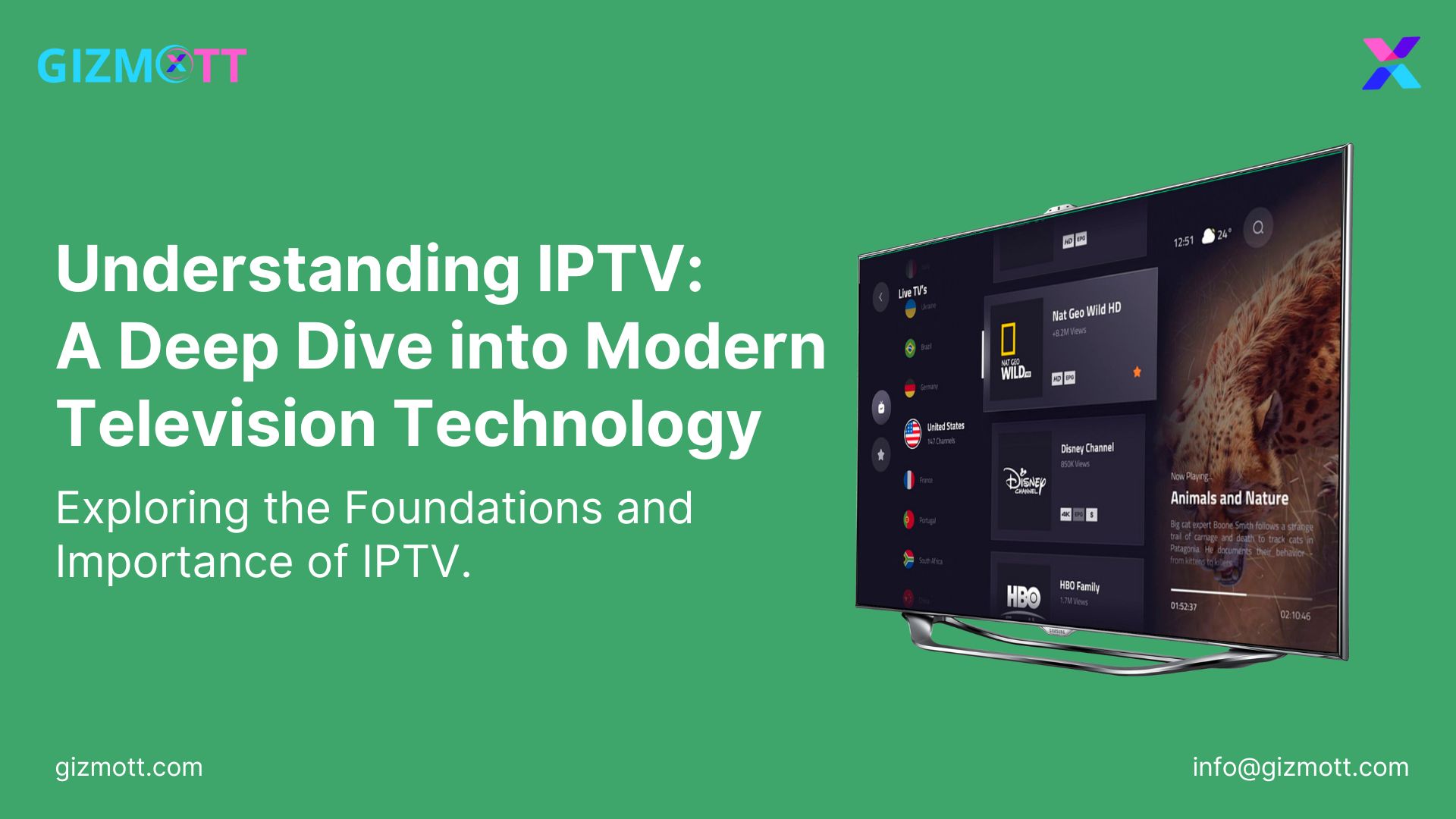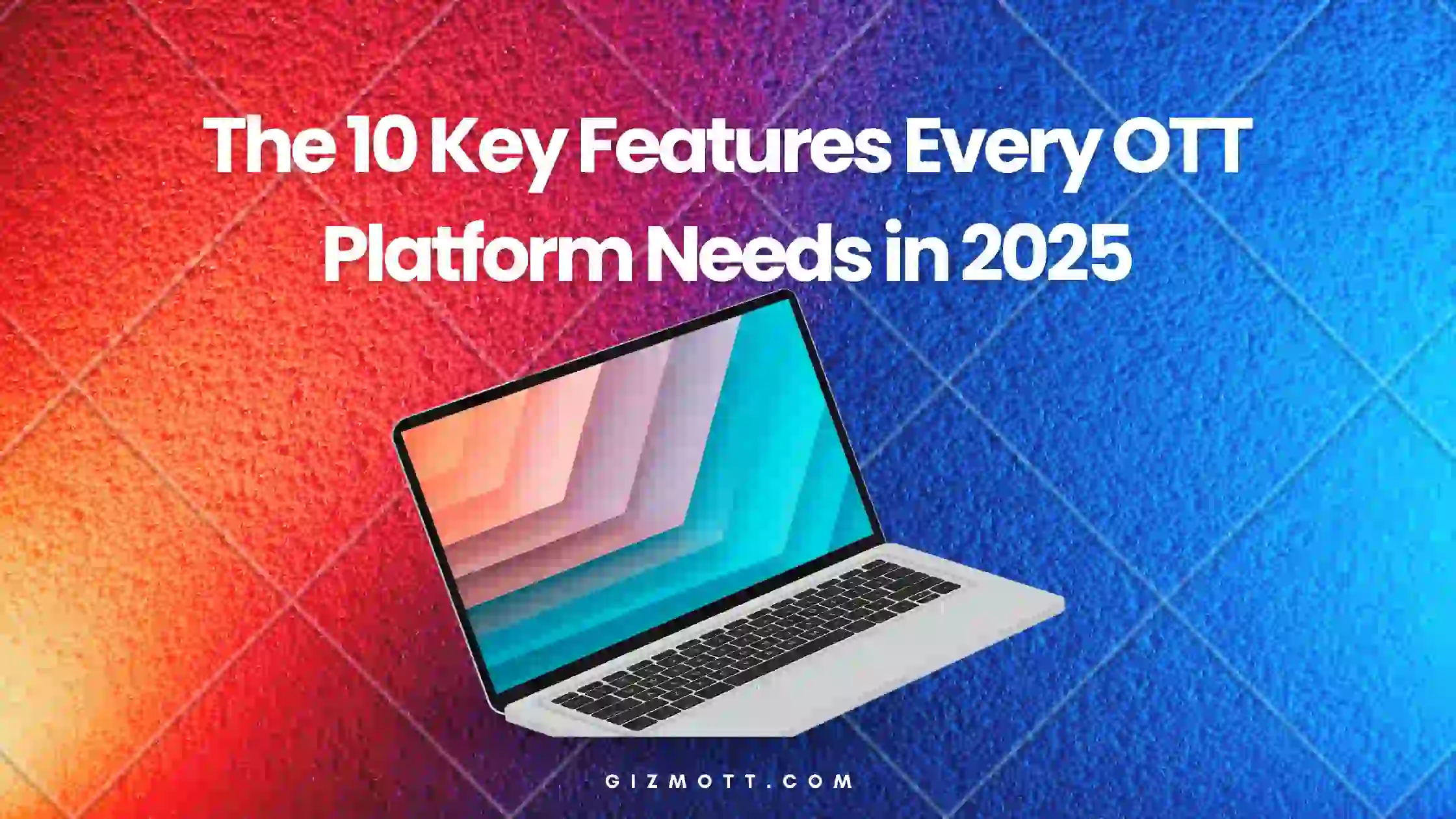In the fast-paced world of technology, the landscape of television has undergone a profound transformation. Traditional cable and satellite TV are gradually being replaced by more innovative and efficient methods of content delivery. One such revolutionary technology is IPTV, or Internet Protocol Television.
In this blog post, we will take a comprehensive look at IPTV, exploring its origins, how it works, its advantages, and its impact on the way we consume television content in the modern era.
The Evolution of Television Technology
Television has come a long way since its inception in the early 20th century. The transition from black-and-white to color, the shift from analog to digital broadcasting, and the advent of high-definition (HD) and 4K resolution have marked significant milestones in television technology.
However, perhaps one of the most transformative developments has been the integration of the internet into the television viewing experience.
The emergence of smart TVs, streaming services, and on-demand content has reshaped the way we engage with television. IPTV is a crucial component of this transformation, offering a more flexible and personalized approach to content delivery.
What is IPTV?
IPTV, or Internet Protocol Television, is a method of delivering television content over the internet rather than through traditional terrestrial, satellite, or cable formats. This technology utilizes the same basic principles as the internet to transmit audio, video, and other forms of multimedia content to viewers. Unlike traditional broadcasting methods, IPTV provides a more interactive and customizable experience for users.
How IPTV Works
IPTV operates by converting television signals into data packets and delivering them over an internet connection. The process involves several key components:
Content Sources
The content originates from various sources, including live broadcasts, on-demand libraries, and streaming services.
Content Aggregation
A service provider aggregates the content and organizes it into a format compatible with IPTV delivery.
Transmission
The content is then transmitted over the internet using Internet Protocol (IP) technology.
Reception
Users access the content using an IPTV-compatible device, such as a smart TV, set-top box, or even a computer or smartphone.
Decoding
The IPTV device decodes the data packets, converting them back into audio and video signals that can be displayed on the screen.
Advantages of IPTV
IPTV offers several advantages over traditional television delivery methods, contributing to its growing popularity:
Flexibility
IPTV allows users to watch their favorite content whenever they want, thanks to features like video-on-demand (VOD). This flexibility is particularly appealing in a world where viewers value convenience and personalization.
Interactivity
Unlike traditional TV, IPTV enables users to interact with content. This may include features like pausing live TV, accessing additional information about a program, or participating in interactive shows.
Cost-Efficiency
IPTV can be more cost-effective for both providers and consumers. Service providers can optimize bandwidth usage, while consumers can choose from a variety of subscription options based on their preferences.
Global Access
With an internet connection, users can access IPTV content from virtually anywhere in the world. This global accessibility is a significant advantage for those who want to stay connected to their favorite shows while traveling.
Quality of Service
IPTV can deliver high-quality audio and video, especially with the increasing prevalence of high-speed internet connections. This is crucial for viewers who demand a superior viewing experience.
Devices That Work With IPTV Services
Choosing the best IPTV device depends on your specific needs, preferences, and the features offered by each device. Here are some popular IPTV devices:
1. Roku Streaming Stick+
4. MAG 322
3. Apple TV 4K
2. Amazon Fire TV Stick 4K
Impact on the Television Industry
The rise of IPTV has had a profound impact on the television industry, prompting traditional broadcasters to adapt to the changing landscape. Streaming services like Netflix, Hulu, and Amazon Prime Video have embraced IPTV to reach a broader audience and provide a more personalized experience.
Cable and satellite providers are also integrating IPTV into their offerings to stay competitive. This convergence of technologies has led to the development of hybrid TV solutions, combining traditional broadcasting with internet-based services.
Challenges and Concerns
While IPTV brings numerous benefits, it is not without its challenges and concerns. Some of the key considerations include:
Bandwidth Requirements
IPTV relies on a stable and high-speed internet connection. In areas with limited or unreliable internet access, users may experience buffering or degraded video quality.
Content Piracy
The digital nature of IPTV makes it susceptible to piracy. Unauthorized distribution of copyrighted content poses a challenge for content creators and service providers.
Regulatory Issues
The regulatory landscape for IPTV varies from one region to another. Some jurisdictions have stringent regulations, while others have yet to establish comprehensive frameworks for governing IPTV services.
Security
Protecting the integrity and confidentiality of IPTV content is crucial. Security measures must be in place to prevent unauthorized access and distribution of content.
The Future of IPTV
As technology continues to advance, the future of IPTV holds exciting possibilities. Here are some trends and developments to watch for:
Augmented Reality (AR) and Virtual Reality (VR)
The integration of AR and VR technologies into IPTV could revolutionize the way we experience television, offering immersive and interactive viewing experiences.
Artificial Intelligence (AI)
AI-powered recommendation engines and content personalization are likely to play a more prominent role in IPTV, helping users discover content tailored to their preferences.
Blockchain for Content Security
Blockchain technology may be employed to enhance the security and traceability of IPTV content, addressing concerns related to piracy and unauthorized access.
Conclusion
In conclusion, Gizmott emerges as a pivotal player in the ever-evolving landscape of IPTV, standing at the forefront of technological innovation. With a commitment to seamless user experiences, adaptability, and a forward-looking approach, Gizmott is well-poised to shape the future of television consumption.
As the industry embraces 5G integration, augmented and virtual reality, artificial intelligence, and blockchain for content security, Gizmott’s ability to navigate these advancements positions it as a key influencer in the transformative journey of IPTV.
Future Outlook
Looking ahead, Gizmott’s potential lies in its agility to incorporate emerging technologies, ensuring an immersive user experience. The integration of 5G networks, exploration of augmented reality and virtual reality, and harnessing the power of artificial intelligence for personalized content delivery are key focus areas.
Additionally, Gizmott’s commitment to content security through blockchain technology signifies its dedication to addressing evolving challenges. As Gizmott continues to refine its offerings and embrace industry trends, it not only meets but exceeds the expectations of modern television consumers, solidifying its role as a transformative force in the future of IPTV.




